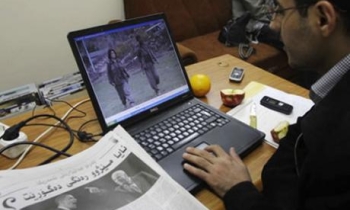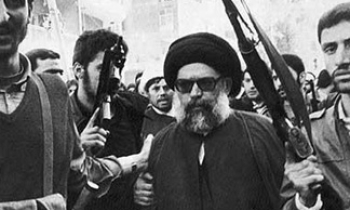Uganda will be investigating all foreign journalists entering the country since they have become "security concerns" for the government, the Monitor has reported.

The Minister for Information, James Nsaba Buturo, has said the Ugandan government authorised the Media Centre to investigate all foreign journalists entering the country because they have become a "security concern". Buturo, who was speaking at the weekly cabinet press briefing in Nakasero last week, was responding to journalists who asked under what mandate the Media Centre had taken over the accreditation of foreign journalists from the Media Council.
"Some people (foreign journalists) come into the country with other intentions," Buturo said. "Investigations will include making inquiries in their home countries and the findings will be submitted to Media Council to help make a decision."
Media Centre Director Robert Kabushenga, who has two military assistants, has refused to renew the accreditation of Blake Lambert, a Canadian journalist and given only temporary clearance to British Broadcasting Corporation"s Will Ross. The crackdown comes before the country"s presidential elections, set for next month.
The government has been accusing the independent press of tarnishing Uganda"s image. On January 3, foreign journalists were summoned to the Media Centre and ordered to reapply for accreditation. Since then they have been restricted to a radius of 100 kilometres from Kampala, beyond which they cannot move without clearance from the Centre.
Lambert said his application for new accreditation was turned down. Lambert writes for the Washington Times, Christian Science Monitor and the Economist. He is also a panelist on a political talk show on KFM radio.
"We are doing this in the interest of the people of Uganda , we are in power, we are the government of the day and we are satisfied with this kind of arrangement," Buturo said.
A day later, the minister was quoted in New Vision claiming that the Media Centre had not usurped the powers of the Media Council of accrediting the journalists. The country's Press and Journalists Act requires an employee of a foreign media organisation to have an accreditation card issued by the Media Council before practising journalism in Uganda.
"It is not true that the accreditation powers of the Media Council have been handed over to the Media Centre. Accreditation as well as renewal of foreign journalists' applications is still the work of the Media Council and not the Media Centre," he said. Buturo said as the responsible minister, he had asked the Media Centre to temporarily assist the Media council in investigating incoming foreign journalists.

"Such investigations would relate to applicant's origins, profession and intended business. This was after noting that the council was poorly staffed and unable, therefore, to process applications," he said. Buturo added, "We are in the process of strengthening the council." Buturo said the centre forwards its findings to the council, which then exercises its powers to approve or disapprove accreditation.
The Democracy Monitoring Group (DEMGroup) criticised the decision, and also advised foreign journalists to continue getting their accreditation from the Media Council and not from the Media Centre until the law was otherwise amended.
Grace Kaiso, the group's national coordinator, said, "The Press and Journalists Statute clearly gives the mandate of accrediting foreign journalists to the Media Council. Any contrary directive undermines the authority of the legally established Media Council." He said, "The mandate and functions of the Media Centre remain largely unknown and can therefore be used to undermine the freedom of press."
Earlier this month, Reporters sans Frontières (RSF) said President Yoweri Museveni"s government has for the past several months been using a range of tactics to coerce and intimidate certain – often critical – media outlets and increase its influence over others in a campaign to control news and information in the run-up to a presidential election.
"The campaign for the February 23, 2006 election, which began on December 14, 2005, is supposed to be fair and free of threats and violence, but this is not the case," it said. "The government"s obvious efforts to control the press and restrict free speech are undermining the democratic image it tries to project. They show it fears a free press and is not prepared to respect the democratic rules if it thinks it could thereby lose power."
Amid mounting political tension, legal action has been the government"s preferred strategy for combatting news media that have not hesitated to criticise it. The latest episode in its campaign of intimidation was the December 13, 2005 arrests of Weekly Observer editor James Tumusiime and one of his reporters, Semujju Ibrahim Nganda, on charges of inciting sectarianism, for which they face up to five years in prison.
They were held for several hours by the Kampala police and interrogated about a report on December 1, 2005 that blamed Gen. Museveni and two other army generals from the same ethnic group for the decision to arrest and detain opposition leader Kizza Besigye of the Forum for Democratic Change (FDC) on his return from exile.

As part of the government campaign to discredit Besigye, the police harassed the independent Daily Monitor for a week in November last and threatened to close it down. Around 20 armed policemen raided the newspaper"s offices shortly before midnight on November 17 after the publication of its latest issue, which contained FDC publicity.
A Daily Monitor employee, Lawrence Nsereko, was beaten up on December 29, 2005 by two members of the ruling National Resistance Movement who were enraged to see Nsereko remove a Museveni poster that had been pasted on a display stand where the newspaper shows advertisements.
One of the Daily Monitor's leading journalists, Andrew Mwenda, is meanwhile facing a possible five-year prison sentence on a charge of sedition for hosting a programme on Radio 93.3 KFM about the death of Sudan"s former rebel leader John Garang in a helicopter crash. The radio was closed down for a week in mid-August.
On November 23, on the eve of the start of Besigye"s trial by court martial, the government banned Uganda"s radio stations from broadcasting any debates or talk-shows about it on the grounds that commenting on an ongoing trial was prohibited by legislation designed to guarantee the "right to a fair hearing."
Hours after the ban was announced, armed men surrounded the studios of Radio Simba after dark looking for opposition activist Muwanba Kivumbi, who had been invited to come and be interviewed. He was arrested upon his arrival at the radio station.
The government has been using other means to influence editors and journalists. Museveni recently approved the appointment of Brig Noble Mayombo, permanent secretary of the defence minister and former head of military intelligence, as chairman of the board of the state-owned New Vision, Uganda"s largest-selling daily. The government also chooses which journalists are worthy of accreditation to its newly-created communication unit.
The government has also strengthened its hold over The Red Pepper – a sensationalist tabloid weekly often used to attack the opposition – by providing it with 270 million shillings (125,000 euros) in financing.









